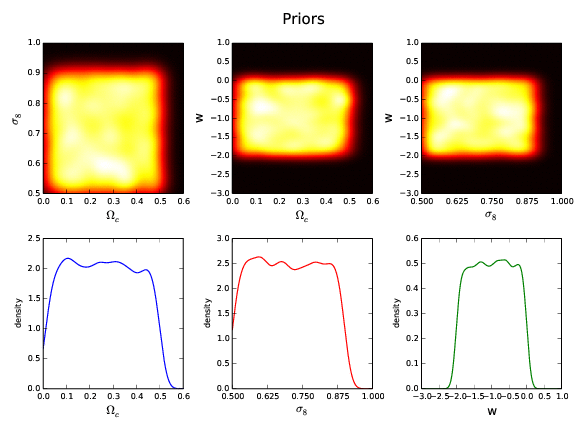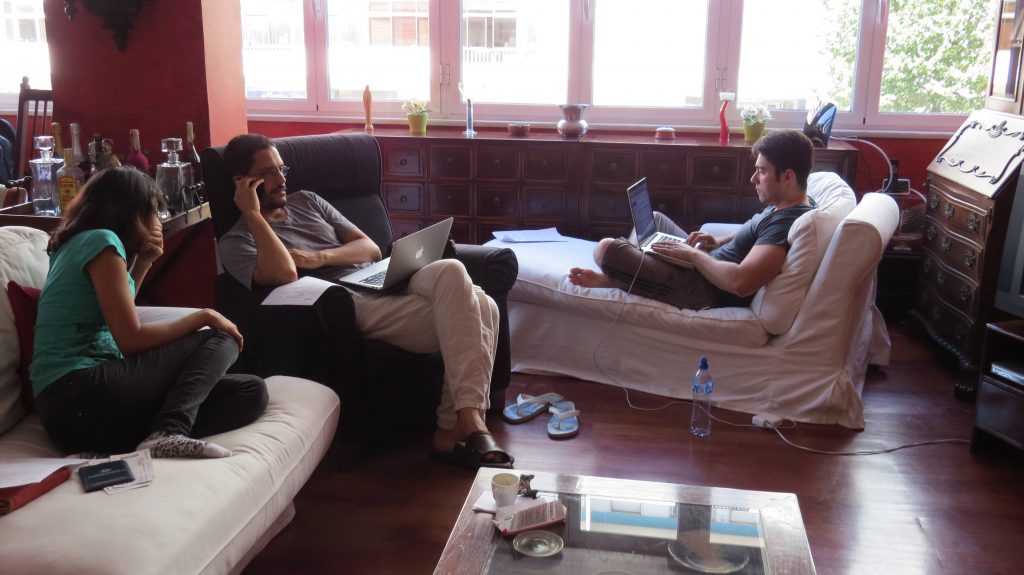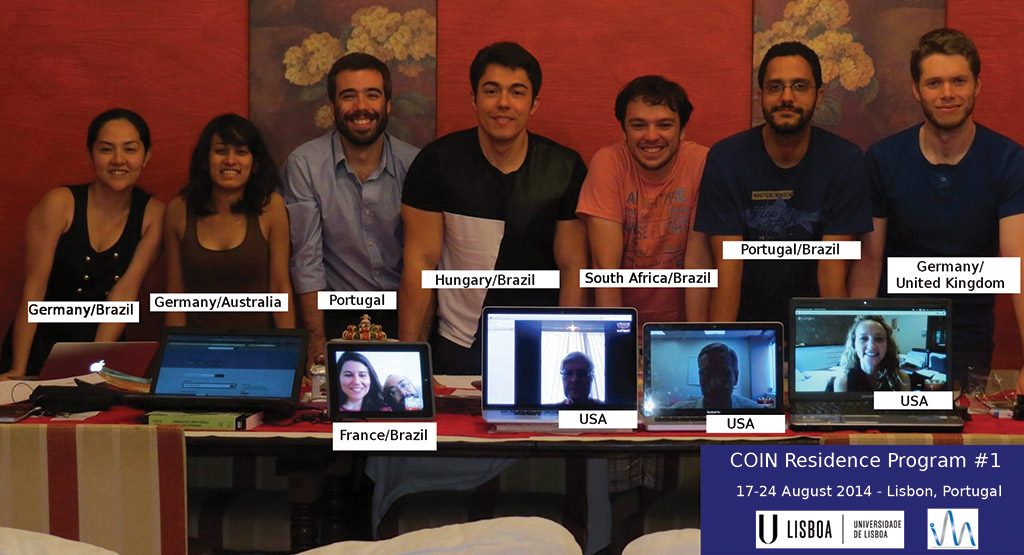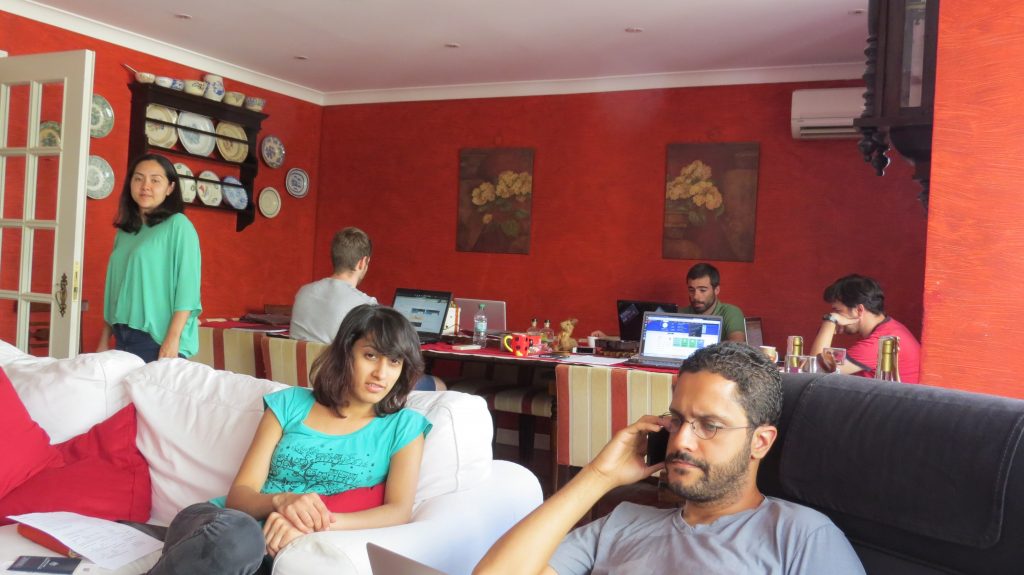The Cosmostatistics Initiative
![]()
The Cosmostatistics Initiative (COIN) is a worldwide endeavour aimed to foster interdisciplinary collaborations to solve data-driven scientific challenges.
The group is lead by Rafael S. de Souza (University of North Carolina, USA) and co-chaired by Alberto Krone-Martins (Universidade de Lisboa, Portugal), Emille E. O. Ishida (Université Clermont Auvergne, France), Ewan Cameron (Oxford University, UK) and Jessi Cisewski (Yale University, USA).
Researchers willing to join are welcome to contact any of the chairs!
COIN Residence Programs
An unstructured meeting, offering opportunities for collaborative research, learning, and transference of skills.
The CRPs are composed by young and senior researchers from astronomy, statistics, computer science and related disciplines alike.
The group utilizes a management model somewhat similar to technological start-ups. Our dynamic, non-hierarchical, and people-centric approach enables innovation in scientific research, while helping its members to enhance their career paths.
A complete report of COIN projects, results and previous meetings can be found in the COINtoolbox.
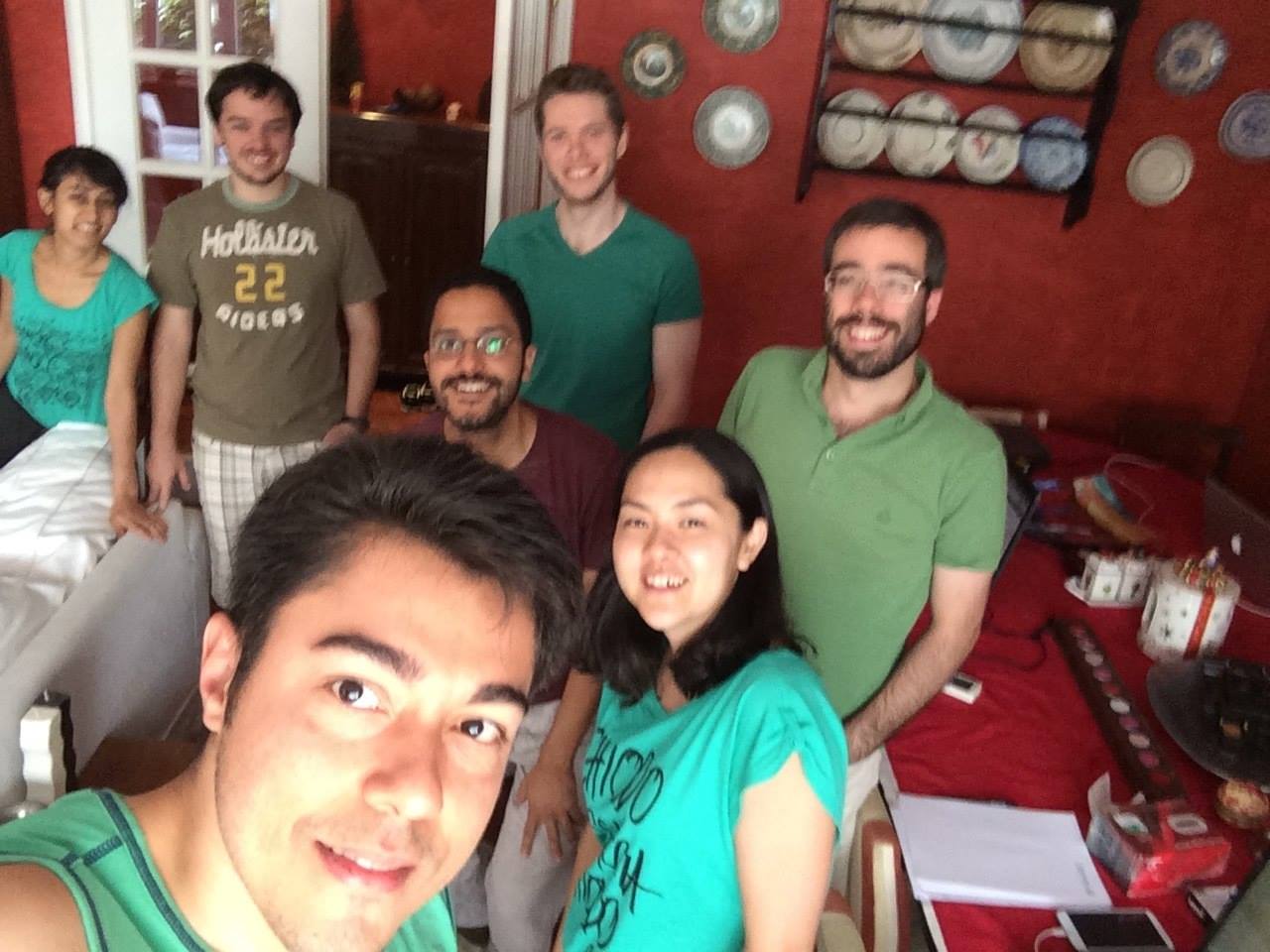
Organizers

Rafael S. de Souza
SHAO, China

Alberto
Krone-Martins
UCI, USA and U.Lisbon, Portugal
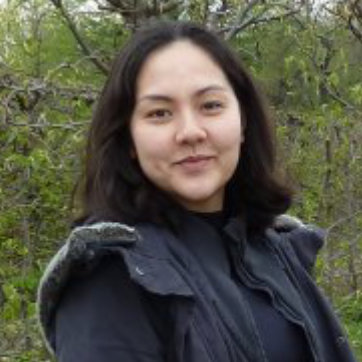
Emille E. O. Ishida
CNRS/UCA, France
Location

Lisbon, Portugal
Lisbon is one of two Portuguese cities (alongside Porto) to be recognized as a global city. It is one of the major economic centres on the continent, with a growing financial sector and one of the largest container ports on Europe's Atlantic coast. The city is the 9th-most-visited city in Southern Europe, It is one of the oldest cities in the world, and the second-oldest European capital city (after Athens), predating other modern European capitals by centuries. Julius Caesar made it a municipium called Felicitas Julia adding to the name Olissipo. Ruled by a series of Germanic tribes from the 5th century, it was captured by the Moors in the 8th century. In 1147, the Crusaders under Afonso Henriques reconquered the city and since then it has been the political, economic and cultural center of Portugal.
Source: Wikipedia
Code of Conduct
COIN is composed of members from around the globe with a diverse set of skills, personalities, and experiences. This is one of the characteristics which makes it unique and fruitful.
We require participants to follow these guidelines which help steer our interactions and strive to keep the CRPs an enlightening experience for all members involved.
The official language of CRP#1 is English.
Important:
CRP #1 will be a harassment-free environment for everyone, regardless of gender, sexual orientation, disability, physical appearance, body size, race, nationality, religion, or choice of R versus Python.
Please bring any issues to the confidential attention of the workshop organizers.
Directives:
Be receptive to constructive comment and criticism, as the experiences and skill sets of other members contribute to the whole of our efforts.
Be thoughtful when addressing the efforts of others, keeping in mind that often times the labour was completed simply for the good of the group.
Be good and respectful to each other.
Given the informal nature of the program, be perceptive about eventual help needed in the organization and maintenance of the household tasks. Remember that there is no room service or catering. Keeping things clean and organized is up to the group itself.
CRP #1 is a strictly non-smoking event. Smoking is not allowed anywhere inside the venue.
Participants sharing a room should pay attention to tidiness, sleeping hours and noise. In the common areas, there is no time limit and you can keep working through the night, if you wish to.
Publication and authorship:
The mere participation in one of the CRPs does not guarantee authorship in COIN papers.
Publications developed during the CRPs are lead by volunteer participants who commit to the implementation of all stages of the project during and after the meeting.
All participants who contribute to development of a project will be included in the author list. The order of the authors is decided by the project leader once the paper is finalized.
Reference: Adapted from Python Code of Conduct

Meet the participants of CRP #1!

Alberto Krone-Martins
UCI, USA and U. Lisbon, Portugal

Arlindo M. M. Trindade
Industry - UK

Emille E. O. Ishida
CNRS/UCA, France

Ewan Cameron
U. of Oxford, UK

Jessi Cisewski-Kehe
Yale U. - USA

Jonathan Elliott
MPE - Germany

Joseph Hilbe
ASU - USA

Madhura Killedar
U. Sydney - Australia
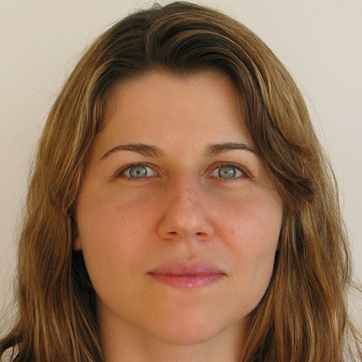
Mariana Penna-Lima
U. Brasilia - Brazil

Rafael S. de Souza
SHAO, China

Ricardo Vilalta
U. Houston - USA

Sandro Vitenti
UE Londrina - Brazil
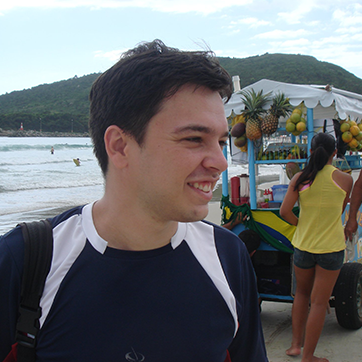
Vinicius C. Busti
U. Sao Paulo - Brazil

Research developed during CRP #1
Project 1:
The overlooked potential of Generalized Linear Models in astronomy I: Binomial regression
We elucidate the potential of the so-called logit and probit regression techniques, from both a maximum likelihood and a Bayesian perspective. As a case in point, we explore the conditions of star formation activity and metal enrichment in primordial minihaloes from cosmological hydro-simulations including detailed chemistry, gas physics, and stellar feedback.
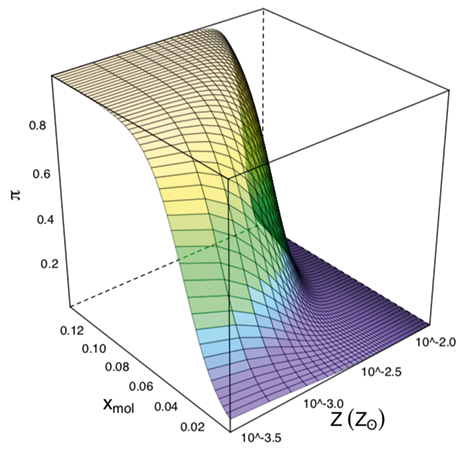
Project 2:
The overlooked potential of Generalized Linear Models in astronomy II: Gamma regression and photometric redshifts
We present a gamma regression model as a fast alternative method for estimating the photometric redshifts of galaxies from their multi-wavelength photometry. Using the gamma family with a log link function we predict redshifts from the PHoto-z Accuracy Testing simulated catalogue and a subset of the Sloan Digital Sky Survey from Data Release 10.
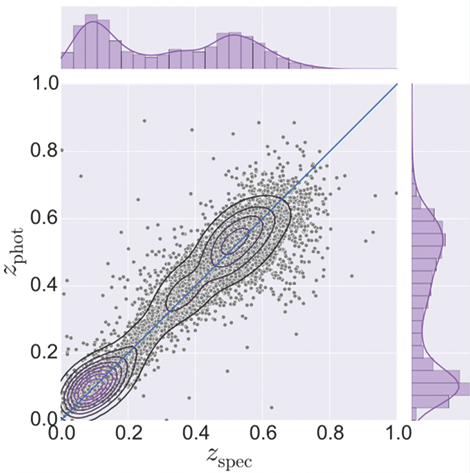
Project 3:
cosmoabc: Likelihood-free inference via Population Monte Carlo Approximate Bayesian Computation
Approximate Bayesian Computation (ABC) enables parameter inference for complex physical systems in cases where the true likelihood function is unknown, unavailable, or computationally too expensive. Here we present COSMOABC, a Python ABC sampler featuring a Population Monte Carlo variation of the original ABC algorithm, which uses an adaptive importance sampling scheme.
